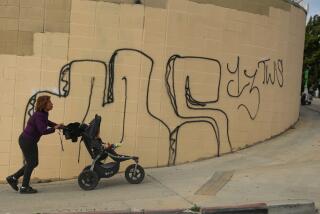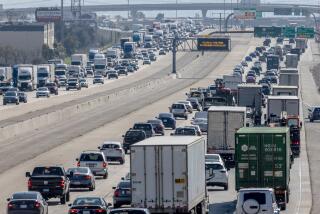Lung damage from dirty air starts early
- Share via
Not only does smog stunt lung growth in schoolchildren, as recent research has shown, the damage can begin in infancy, even prenatally.
A new study has found that exposure in the womb to dirty air -- and, after birth, to secondhand cigarette smoke -- can harm infants’ lungs, making them more susceptible to asthma and other serious respiratory problems.
The study, by researchers at Columbia University, is the first to suggest that such ill effects can occur in infancy, and that environmental pollutants and tobacco smoke are a greater health hazard combined than either factor individually or together.
The research involved 303 pregnant African American and Dominican women, all nonsmokers, who lived in high-traffic areas of New York City where one of four children suffers from asthma. The women wore personal air monitors for two days to measure their exposure to such environmental pollutants as vehicle emissions, residential heating and other combustion sources.
After delivery, each participant was surveyed about her infant’s exposure to tobacco smoke from friends and relatives, and the child’s respiratory health.
The study revealed that infants exposed prenatally to high levels of environmental pollutants and, after birth, to secondhand smoke were significantly more likely to cough and wheeze at 12 months than those who weren’t. They also experienced more difficulty breathing and had a higher incidence of asthma symptoms at 24 months of age than infants who weren’t exposed.
These results underscore the need to reduce exposure to secondhand smoke, both during pregnancy and after birth, and clean up the air in the inner cities, says Frederica Perera, a study coauthor and director of the Columbia Center for Children’s Environmental Health.
The study appears in the October issue of Chest, the journal of the American College of Chest Physicians.






